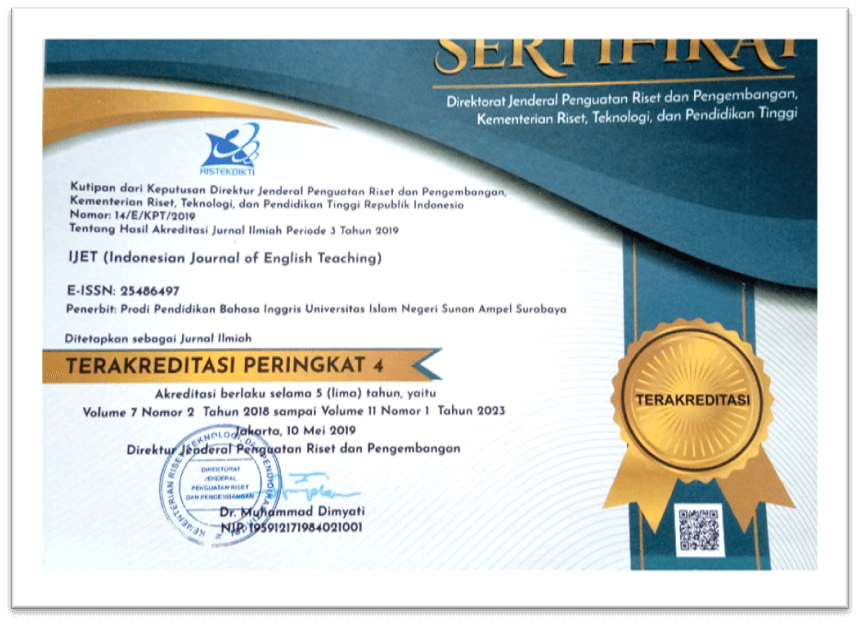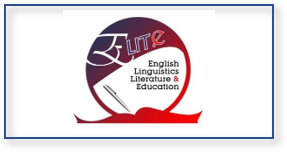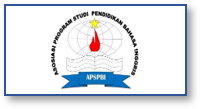Download data is not yet available.
2017-07-13
Liengleam, T. and Sa-ngiamwibool, A. (2017) “Lessons from Best Practices for English Language Educational Reform in Thailand”, IJET (Indonesian Journal of English Teaching), 6(1), pp. 123–136. doi: 10.15642/ijet2.2017.6.1.123-136.
Articles
Similar Articles
- Ni Made Anggi Arlina Putri, Riyadi Santosa, Dewi Rochsantiningsih, Authentic Assessment Implementation on Curriculum 2013: Types and Its Washback , IJET (Indonesian Journal of English Teaching): Vol. 10 No. 1 (2021): July
You may also start an advanced similarity search for this article.










